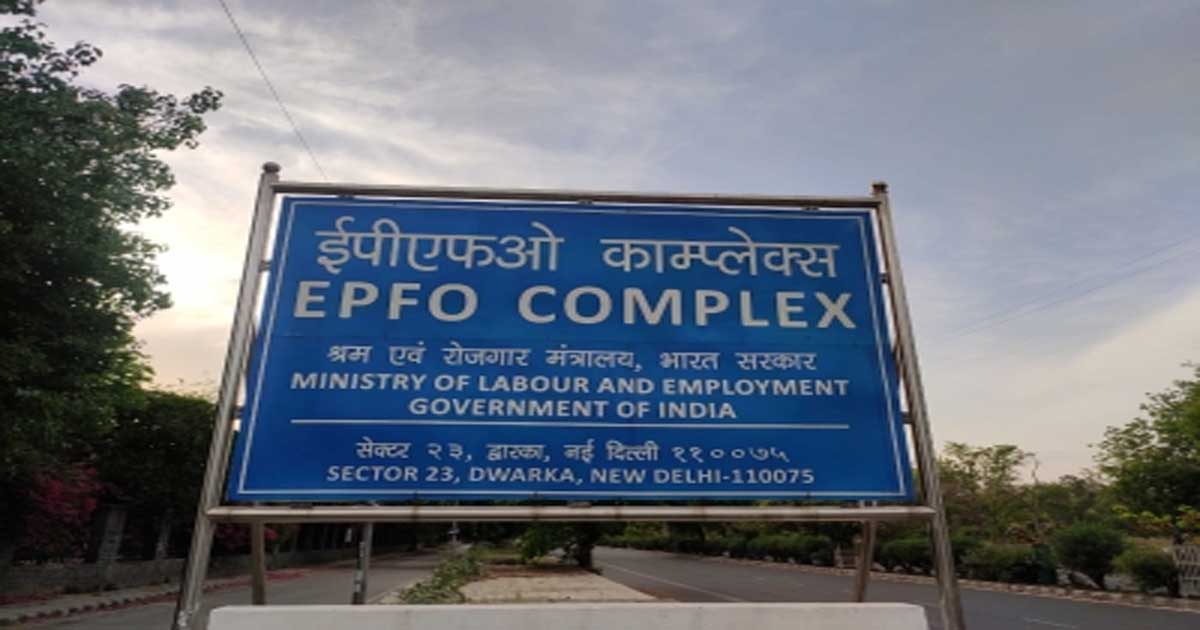Business
Modi 3.0 Budget 2024: From ₹401 Crores In 1952-53 To ₹47,65,768 Crores In 2024-25, The Budget Expenditure Journey Of India

As the nation eagerly awaits with several expectations, the Union Finance Minister Nirmala Sitharaman will present the Budget 2024 on July 23 (Tuesday) in Lok Sabha. Ahead of the Budget presentation, Sitharaman today, July 22, tabled the Economic Survey 2023-2024 in the parliament as the session kicked off.
This budget will also set a record for Sitharaman by marking her presentation of the highest number of budget in the parliament, that is, a total of seven in a row.
The markets, investors and various sectors across will keenly watch the budget and the allocations.
With several expectation across various sectors, OMRON Healthcare India, Managing Director, Tetsuya Yamada, added, “India’s healthcare system faces a significant challenge due to the increasing burden of non-communicable diseases (NCDs). India has more than 220 million people who suffer from high blood pressure, but a WHO study showed that only 15% of them receive treatment.”
“We hope that the government will keep in mind the importance of implementing policies and promoting widespread knowledge of preventive care, which can reduce the burden of costs for hospitalization and surgery,” he added.
Furthermore, he noted, “We anticipate that the Union Budget 2024-25 will reflect a forward-thinking approach including preventive care at home, aligning with industry needs, and ultimately establishing a resilient and advanced healthcare framework.”
Here is the breakdown of the budget expenditure since independence:
The Early Years- 1952-1960
In the early period of post-independence, the country’s budget expenditure was relatively the lowest compared to the recent. It stood at Rs 401 crores in 1952-53 and by the 1959-60 period, the expenditure doubled to Rs 839 crores.
The 1960s: Laying the Foundations
Continuing the upward trend, the budget expenditure reached Rs 980 crores in 1960-61 with many significant allocations in various sectors such as agriculture, industry, and defence.
Furthermore, it crossed the Rs 1,000 crore mark for the first time in 1961-62 at Rs 1,024 crores and the decade ended with the budget at Rs 3,388 crores in 1969-70.
The 1970 period
Although facing with many economic challenges during the 1970s period, including the inflation and global oil crises, the budget expenditure rose from Rs 3,781 crores in 1970-71 to Rs 12,048 crores in 1979-80.
The 1980s: Economic Liberalisation Begins
Reflecting a shift towards modernisation and industrial growth trend, in 1980-81 it reached Rs 13,310 crores and later then crossed the Rs 1 lakh crore mark in 1985-86 at Rs 1,03,844 crores.
By the end of the decade, the expenditure had reached Rs 82,161 crores in 1989-90.
The 1990s: Liberalisation and Expansion
The economic liberalisation period, the 1990s was a watershed moment for India, and the budget expenditure increased from Rs 1,13,422 crores in 1991-92 to Rs 2,83,882 crores in 1999-2000.
The 2000s: Growth and Global Integration
The new millennium with the continued upward trajectory, the budget expenditure stood at Rs 3,38,487 crores in 2000-01 and crosed the Rs 1 lakh crore mark several times over by 2009-10, reaching Rs 10,20,838 crores.
The 2010s – Digital Revolution and Social Welfare
The digital revolution era, the budget expenditure in 2010-11 was Rs 11,08,749 crores. By 2019-20, the expenditure had surged to Rs 27,86,349 crores.
The 2020s: Resilience Amidst Challenges
The 2020s period began with unprecedented challenges due to the COVID-19 pandemic but despite this, the budget grew from Rs 30,42,230 crores in 2020-21 to Rs 47,65,768 crores in 2024-25.
Business
Explained: EPFO overhauls withdrawal rules to boost transparency, ease access for 30 crore members

New Delhi, Oct 14: The Employees’ Provident Fund Organisation (EPFO) has restructured its partial withdrawal regulations, combining 13 distinct clauses into three main categories: Essential Needs, Housing Needs, and Special Circumstances. This change aims to make it easier to access provident fund savings.
For the nearly 30 crore members who collectively own a corpus of about Rs 30 lakh crore, the reform aims to make the withdrawal process quicker, simpler, and more transparent.
The revised framework, referred to as EPFO 3.0, has standardised withdrawal limits.
Depending on the goal, members can now access up to 100 per cent of their eligible provident fund balance, which includes employer and employee contributions. However, at least 25 per cent of the EPF balance needs to stay in the account in order to maintain a safety net for retirement.
This implies that members can keep the required balance while withdrawing up to 75 per cent of their total corpus.
Additionally, the new regulations standardise the requirements for services. In the past, there were specific requirements for each type of withdrawal, such as five years of service for housing purposes and seven years for marriage-related withdrawals.
All partial withdrawals are now subject to a single 12-month minimum service period, which streamlines the procedure and removes any ambiguity.
Members will no longer need to provide documentation of their withdrawals under the “Special Circumstances” category, which is a significant relaxation. In the past, withdrawals under this heading required proof of emergencies, such as natural disasters or job loss.
The new clause, which permits members to leave without giving a reason, is anticipated to reduce red tape and expedite approvals.
The EPFO has also increased the withdrawal limits for marriage and education-related withdrawals. Instead of the previous cap of three combined withdrawals, members can now make up to 10 withdrawals for education and five for marriage.
Stricter guidelines for final settlements are also introduced by the reforms, though. In contrast to the previous two-month eligibility window, members can now only apply for an early final settlement 12 months after quitting their job and for pension withdrawal 36 months later.
In the event of a job loss, the 25 per cent minimum balance requirement only applies to partial withdrawals; it does not apply to full settlements.
While it is anticipated that the simplified framework will increase efficiency and transparency, workers who are laid off or have experienced extended periods of unemployment may find it difficult to obtain their provident fund savings immediately during a time when they may need it most, due to the revised settlement timelines.
Business
Silver hits record high above $52.50 as safe-haven demand fuel rally

Mumbai, Oct 14: Silver prices soared to an all-time high above $52.50 an ounce on Tuesday, boosted by a historic short squeeze in London and strong demand for safe-haven assets amid global economic uncertainty.
Spot silver rose as much as 0.4 per cent to $52.58 an ounce in London, breaking the previous record set in January 1980 when the billionaire Hunt brothers tried to corner the market.
Gold prices also climbed to a new record, marking eight consecutive weeks of gains, supported by rising geopolitical tensions and expectations of US interest rate cuts.
The rally in silver comes amid concerns over liquidity in the London market, which has triggered a worldwide rush to secure the metal.
Prices in London are trading at a rare premium compared to New York, prompting traders to fly silver bars across the Atlantic — a costly move usually reserved for gold — to benefit from higher prices.
The premium stood at around $1.55 an ounce on Tuesday, down from $3 last week.
Adding to the squeeze, silver lease rates in London — the cost of borrowing the metal — surged above 30 per cent for one-month contracts last Friday, making it expensive for traders to maintain short positions.
The situation worsened as strong demand from India in recent weeks further reduced available supply, following earlier shipments to New York amid fears of US tariffs.
Experts said the latest surge in both gold and silver reflects heightened market uncertainty.
Gold prices have jumped nearly 60 per cent this year, crossing the $4,100 mark for the first time, supported by geopolitical tensions, rate-cut expectations, and strong buying by central banks and investors.
Key US economic data such as inflation and retail sales are due later this week, but analysts warn that if the government shutdown continues, the release of these reports — including jobs data — could be delayed.
Business
Indian stock markets open higher amid global trade concerns, Q2 earnings buzz

Mumbai, Oct 14: Indian stock markets opened higher on Tuesday as investors looked past global uncertainties caused by the ongoing trade tensions between the US and China, while also tracking quarterly earnings from Indian companies.
The Sensex began the day at 82,562, gaining 235 points or 0.29 per cent. Similarly, the Nifty opened at 25,283, up 55 points or 0.22 per cent.
Among the top performers on the Sensex were HCL Tech, Tech Mahindra, Tata Steel, Infosys, Bharat Electronics, Bajaj Finserv, Ultratech Cement, ICICI Bank, Kotak Mahindra Bank, and Larsen & Toubro, which rose up to 1.3 per cent.
On the other hand, stocks like Eicher Motors, Maruti Suzuki, Axis Bank, Sun Pharma, State Bank of India, Bajaj Finance, and Bharti Airtel witnessed early losses.
In the broader market, both the Nifty MidCap and Nifty SmallCap indices were trading in the green, rising 0.37 per cent and 0.38 per cent, respectively.
Among sectoral indices, the Nifty Metal index led the gains with a 1 per cent rise, supported by positive momentum in metal stocks.
Meanwhile, the Nifty Pharma index was the biggest laggard, slipping 0.37 per cent.
As per the experts, IT stocks, particularly the largecaps, are viewed as overvalued by the market since they are facing many headwinds and some strong structural issues.
“On the other hand PSU stocks have been trading at very low valuations despite decent growth and robust balance sheets. This anomaly in valuations have been corrected by the market. This trend is likely to continue,” market experts said.
‘However, in growth stocks like digital companies and renewable energy, their long-term growth potential will continue to attract investment despite high valuations,” they added.
With Muhurat trading approaching, there is room for a mild rally, according to analysts.
-

 Crime3 years ago
Crime3 years agoClass 10 student jumps to death in Jaipur
-

 Maharashtra1 year ago
Maharashtra1 year agoMumbai Local Train Update: Central Railway’s New Timetable Comes Into Effect; Check Full List Of Revised Timings & Stations
-

 Maharashtra1 year ago
Maharashtra1 year agoMumbai To Go Toll-Free Tonight! Maharashtra Govt Announces Complete Toll Waiver For Light Motor Vehicles At All 5 Entry Points Of City
-

 Maharashtra1 year ago
Maharashtra1 year agoFalse photo of Imtiaz Jaleel’s rally, exposing the fooling conspiracy
-

 National News1 year ago
National News1 year agoMinistry of Railways rolls out Special Drive 4.0 with focus on digitisation, cleanliness, inclusiveness and grievance redressal
-

 Maharashtra11 months ago
Maharashtra11 months agoMaharashtra Elections 2024: Mumbai Metro & BEST Services Extended Till Midnight On Voting Day
-

 National News1 year ago
National News1 year agoJ&K: 4 Jawans Killed, 28 Injured After Bus Carrying BSF Personnel For Poll Duty Falls Into Gorge In Budgam; Terrifying Visuals Surface
-

 Crime1 year ago
Crime1 year agoBaba Siddique Murder: Mumbai Police Unable To Get Lawrence Bishnoi Custody Due To Home Ministry Order, Says Report














